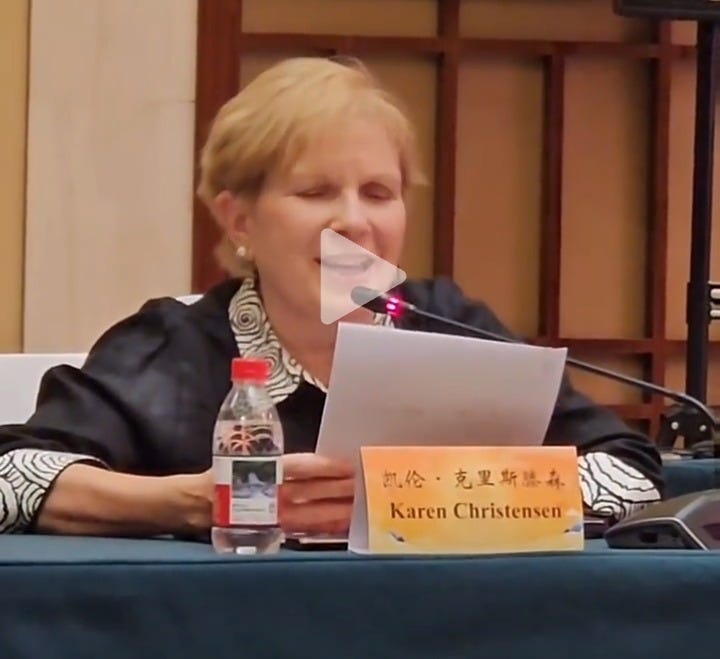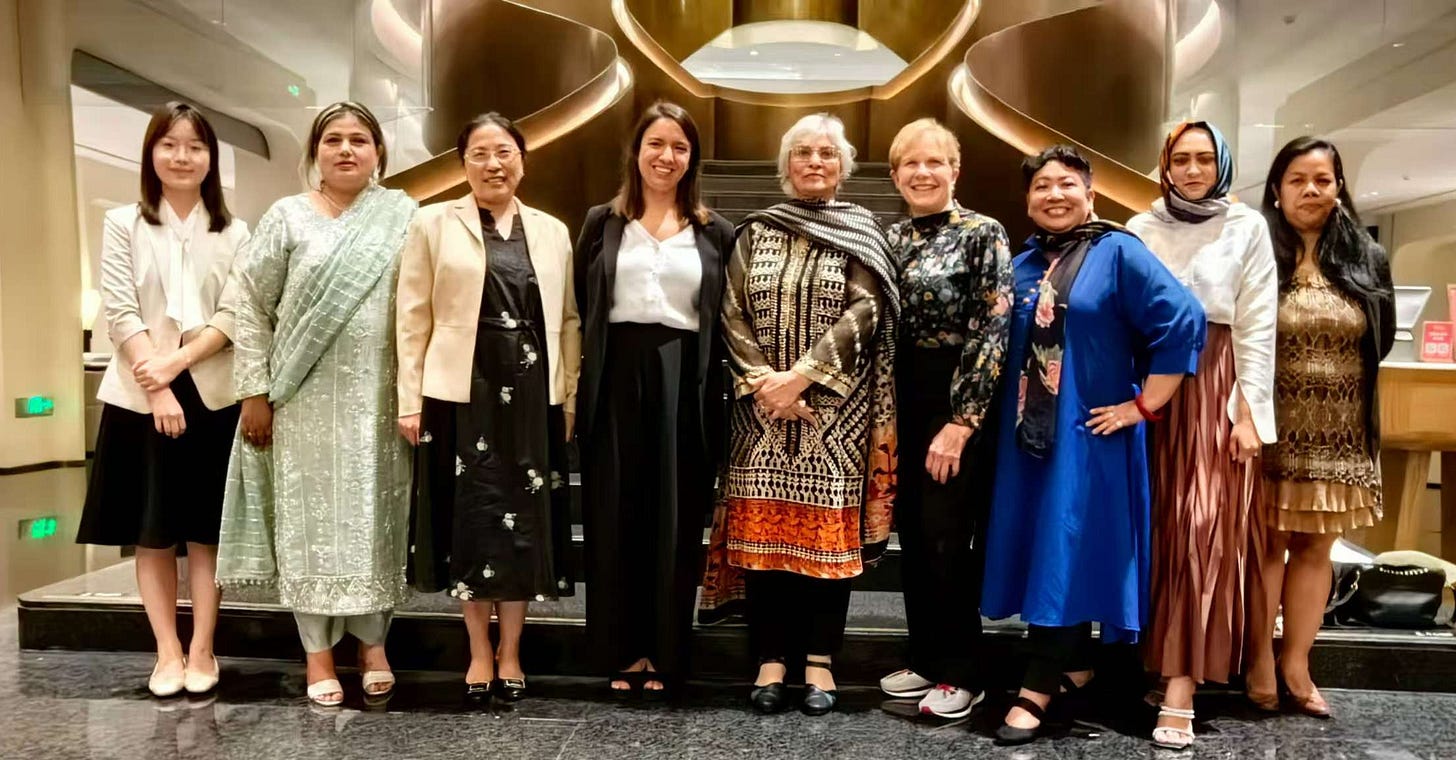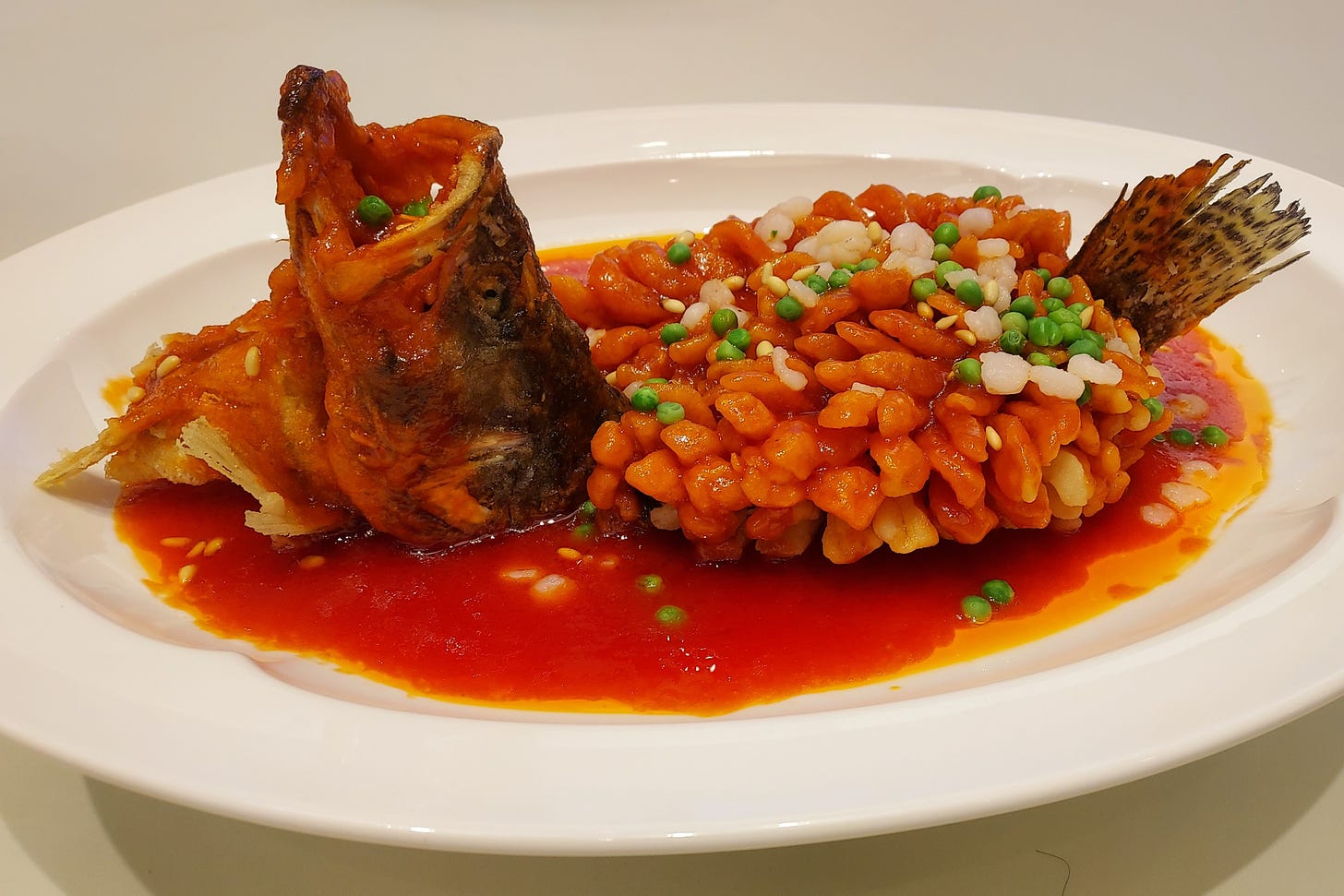I was unable to write to you from China as I’d planned, because Substack is blocked by the Great Firewall and the VPN I’d installed was never able to get me a connection.1 Now, after spending more than 2 weeks in China—Dunhuang, Yanzhou, Hangzhou, and Shanghai—and dozens of conversations, there’s far too much to include in a single post. (Especially as the USA seems even more troubled than it was a month ago, and the news seems to be nonstop.) I'll keep this note fairly brief, but will share more about the conference and other events in future letters.
First, here’s a short video from the organizers in Yangzhou, at the second stage of the 10-day conference organized by the Chinese Association for International Understanding.
The invitation letter I received explained the conference objectives:
With a view to promoting exchanges and mutual learning among civilizations, and to enhancing people-to-people connectivity, the China Writers Association(CWA) and the Chinese Association for International Understanding (CAFIU) will jointly hold the Fourth Dialogue on Exchanges and Mutual Learning among Civilizations from May 30 to June 5, 2025 in Dunhuang City, Gansu Province, China. In recognition of your achievements in strengthening the literary community and contributions to promoting international literary exchanges, we sincerely invite you to attend.
Launched in 2019, the Dialogue aims to contribute wisdom and strength to building a better world. Professionals from all walks of life around the globe have been invited to discuss the exchanges and mutual learning among civilizations. The Dialogue this year will include a forum for writers and professionals from the literary community, around the theme of "Equality, Inclusiveness, Harmony and Symbiosis: The Literati's Diverse Narratives on Civilizations."
I was amused to note that the words equality, diversity, and inclusivity were used frequently in most of the material we received. What a shrewd response by China to the attacks on “DEI” in the US! Subtle but telling, and highly appropriate when they are focused on building relationships with countries in Africa, Asia, and Latin America.
I met only one other American, Christopher Merrill, director of the International Writing Program at the University of Iowa. This program was funded by the State Department until Elon Musk and DOGE cut its grants earlier this year—another US soft power initiative under assault by the Trump administration.2 Merrill and I had an enjoyable chat about T S Eliot (he’d brought Four Quartets with him) and it turned out that he knew Great Barrington, having been poetry editor at Orion magazine long ago.
My short speech in Dunhuang was part of a panel of writers and literary people. I focused on the role of imagination in international relations as well as in literature. It was also a chance to salute Bill (W H) McNeill, who was known for arguing that contact and exchange among civilizations is what drives human history forward.
Later, in Shanghai, I had a chance to meet some of the people who had worked on the Chinese edition of the Berkshire Encyclopedia of World History. I remembered how often Bill and I had talked about China—even to the point that he tried to eat with chopsticks when I brought a Chinese meal to his house. I wish I could discuss this latest journey with him!
The world is round
Bill McNeill once told me that our goal was to show people that the world really is round. This trip showed me that it’s even rounder than I realized. I’ve worked with people from all over the world, but in Dunhuang and Yangzhou I was in company with people from countries I didn’t know at all: Pakistan, UAE, Chile, Kenya, and more. To my surprise and delight, the women in the group really bonded, finding that we had far more in common than I would have guessed.
Everyone asked me what I thought about Donald Trump, but the United States were never mentioned in the speeches and I had a strong sense that the world is preparing to move on. Not turning to China exactly—there is caution—but recognizing that the world is no longer to be dominated by the US. This passage from a New York Times article echoes my thoughts as I spent time with the other delegates:
Trump grew up when America’s world dominance was unquestioned. His aggressive “America First” approach seems ripped from the Cold War, in which the United States could push around other nations and bend the global order to its terms. / But the world has moved on. Countries don’t treat the United States as a superpower to appease but simply as another factor among their many other problems and interests. They will go along with America only if they feel they truly have something to gain.
Throughout the trip I had opportunities to talk to people about social life and third places. There is a lot of interest in China, and other Asian countries, in the design of public space. That subject was the focus on my 4 days in Shanghai at the end of the trip, and I’ll be writing about thid places in China very soon.
PS: Chinese high-speed trains
Although I had to fly to and from Dunhuang, I was able to take the train a couple of times. You can read about that at Train Time.
PSS: Chinese cuisine
Although Berkshire’s huge culinary project was put on the backburner in 2020, food is always a source of pleasure and conversation in China. I was introduced to many new dishes as well as old favorites, and visited a cuisine museum in Hangzhou. I have a new understanding of the long duration of Chinese history now, in part from seeing that hundreds of years ago people were dining on dishes very much like those we eat today.
Below is a photo of a dish I’ve often been served, known as “squirrel fish” in English. I keep asking why it’s been given this name since it doesn’t look anything like a squirrel. Porcupine, perhaps? One friend asked the waitress, who suggested that “when the oil is poured over it, it makes a sound like a squirrel.” Highly unlikely, it seems to me. If anyone reading this has a better explanation, please do tell me!
Who is Karen Christensen? Find out here. What is The Way We Live Now trying to accomplish? Read about it here.
I should have installed 2 or 3 different VPNs. Because I was traveling with an Android phone (my “burner”) and a new Chromebook, I couldn’t use Google Play to download new apps (Google has been blocked in China for years; Microsoft is not, thank god) after I got there. I had the Nord VPN and their tech support sent me lots of advice about things to try, but I did not want to spend my time on troubleshooting. I will do better next time.
“On Wednesday, Feb. 26, the International Writing Program (IWP) learned that its grants with the U.S. Department of State, Bureau of Educational and Cultural Affairs, were being terminated. This notification explained that the IWP’s awards “no longer effectuate agency priorities,” nor align “with agency priorities and national interest.” The immediate result was the cancellation of Between the Lines (the IWP’s summer youth program), and the dissolution of Lines and Spaces Exchanges, Distance Learning courses, and Emerging Voices programs. The overall Fall Residency cohort will be reduced by around half due to the loss of federally funded participants; the IWP’s other long-time funding partners, including a combination of donors, grants, foreign ministries of culture, and NGOs, will continue to support writers. We are devastated by the abrupt end of this 58-year partnership and are working closely with University of Iowa General Counsel and Grant Accounting to review the terminations, understand their full impact, and respond in the best interest of the organization.” Read more.








